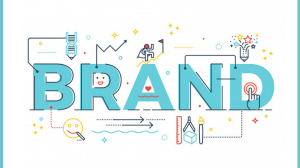The Temptation of a Quick Fix
When you are drowning in debt, it is easy to dream about a fast solution. That is exactly why debt relief in California can sound so appealing for residents of the Golden State. The idea of paying off your debts for a fraction of what you owe feels like a miracle. And in some cases, it can work. However, you have to choose carefully. Sometimes people offering these quick fixes can come with hidden dangers that leave people worse off than when they started.
They advertise heavily, offering hope to people who feel desperate. But if you look closely, you will often see small print and disclaimers that tell a different story. Some companies charge big upfront fees or make promises they cannot keep. Before jumping into any debt settlement program, it is important to understand exactly what you are getting into.
The Red Flags to Watch For
Debt settlement companies that charge you fees before they have done anything should immediately raise your guard. In many cases, it is actually illegal for companies to demand upfront payment before providing any real service. If a company insists you pay them before any negotiations even begin, that is a huge red flag.
Another warning sign is when companies guarantee they can reduce your debt by a specific amount. No one can predict how creditors will respond. Credit card companies and lenders might refuse to negotiate or might not accept the reduced amount the settlement company offers. Any promise that sounds too good to be true probably is.
Some companies may also tell you to stop talking to your creditors completely. They may ask you to stop making payments while they negotiate on your behalf. This can lead to serious consequences like late fees, higher interest rates, and damage to your credit score. Ignoring creditors does not make the debt disappear. In fact, it can make your situation much worse if the negotiations fall through or take longer than expected.
The Hidden Costs You May Not See Coming
Even if a debt settlement works, the process often comes with extra costs that people do not expect. For one, settled debt can be considered taxable income by the IRS. This means you might owe taxes on the forgiven amount, which can add a surprising new bill at tax time.
Debt settlement can also have long-lasting effects on your credit score. Settled debts are still recorded on your credit report, often for several years. This can make it harder to qualify for loans, mortgages, or even rental agreements in the future.
Additionally, many debt settlement companies charge high fees for their services. When you add those fees to the amount you end up paying to settle the debt, the savings might not be as big as you originally thought. Sometimes, people find that after all the fees and taxes, they have not saved much money at all.
Better Alternatives You Should Consider
Before committing to a risky debt settlement plan, it is worth exploring safer alternatives. One of the best places to start is with a nonprofit credit counseling agency. These organizations can help you create a debt management plan that consolidates your payments into one affordable monthly amount. Credit counselors often have existing relationships with creditors and may be able to negotiate lower interest rates on your behalf.
Another option is to contact your creditors directly. Many credit card companies are willing to work with customers who reach out before falling too far behind. They may offer hardship programs that temporarily lower your payments or reduce your interest rates. This kind of direct negotiation can sometimes achieve similar results to debt settlement without involving a third party.
You might also consider speaking with a financial advisor who can review your entire financial picture. Sometimes, restructuring your budget, finding ways to increase your income, or refinancing other debts can make your financial situation more manageable without the risks of debt settlement.
Doing Your Homework Before Signing Anything
If you still decide to explore debt settlement, take your time to do thorough research. Check the company’s credentials. Look for complaints with the Better Business Bureau or your state attorney general’s office. Read online reviews, but be cautious of fake positive reviews posted by the company itself.
Ask for everything in writing. Understand the full cost of the program, including fees, timelines, and potential consequences. A reputable company should be transparent and willing to answer all your questions clearly and honestly.
Most importantly, never let desperation push you into a rushed decision. Scammers often prey on people who feel hopeless. Taking a little extra time to educate yourself can protect you from falling into an even deeper financial hole.
Why the Quick Solution is Not Always the Best Solution
Debt settlement is appealing because it seems fast. But most debt problems take time to build, and they take time to fix. Slower solutions like debt management plans or direct creditor negotiations may require more patience, but they are often safer and more reliable.
There is no shame in struggling with debt. Life happens. Medical bills, job loss, or unexpected emergencies can hit anyone. The key is to approach the situation with clear eyes and avoid the traps set by companies looking to profit from your pain.
Taking Control of Your Financial Future
At the end of the day, avoiding the risks of debt settlement is about staying informed and staying cautious. Debt relief is not impossible, but it requires careful planning and trusted advice. By understanding your options, asking the right questions, and leaning on nonprofit resources when possible, you give yourself the best chance at true financial recovery.
A quick fix might sound great when you are stressed and overwhelmed, but your future deserves a solution that truly works in your favor. Take your time, do your homework, and choose a path that sets you up for long-term success.





















